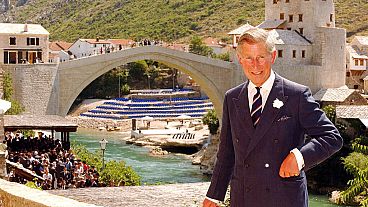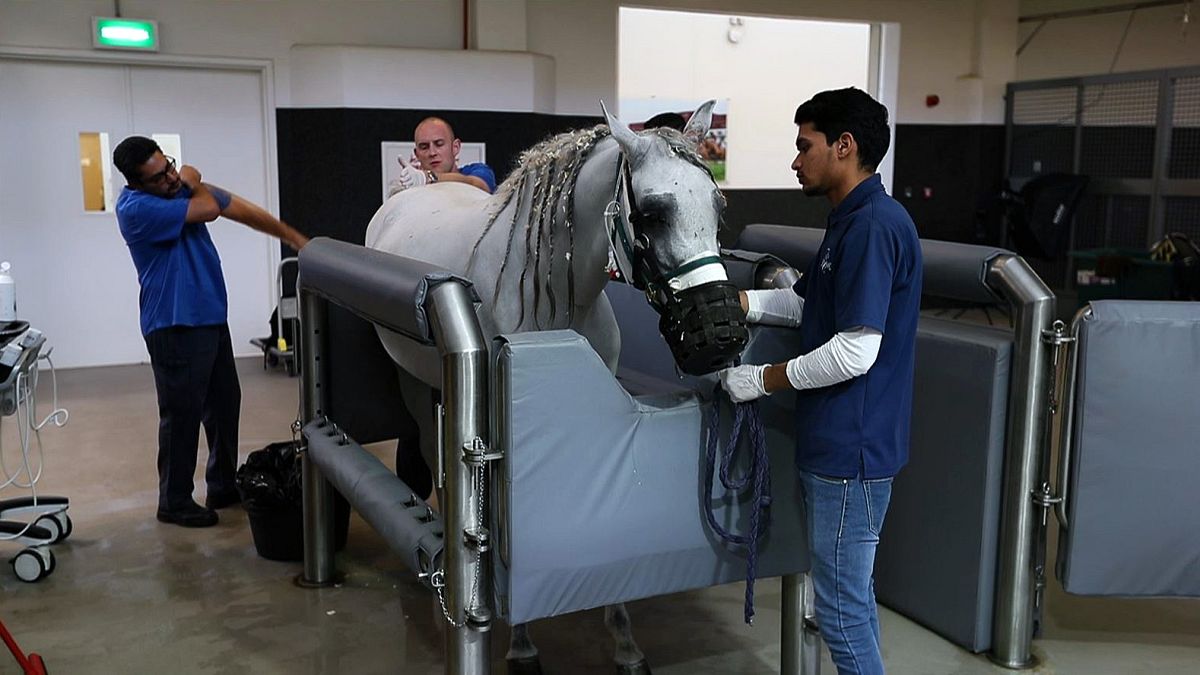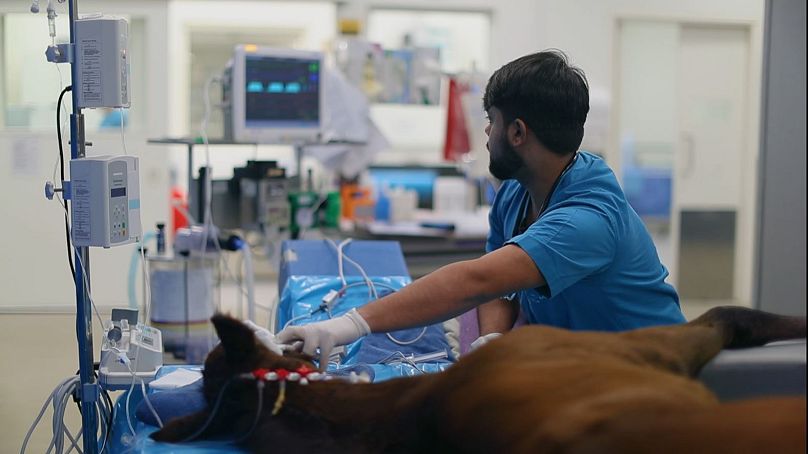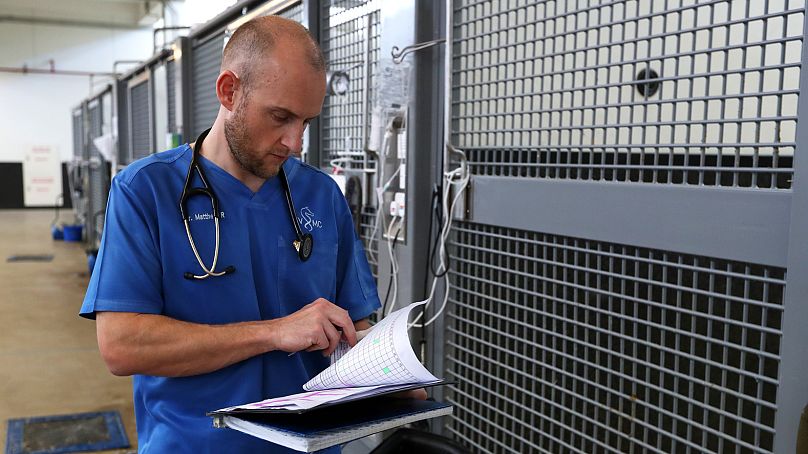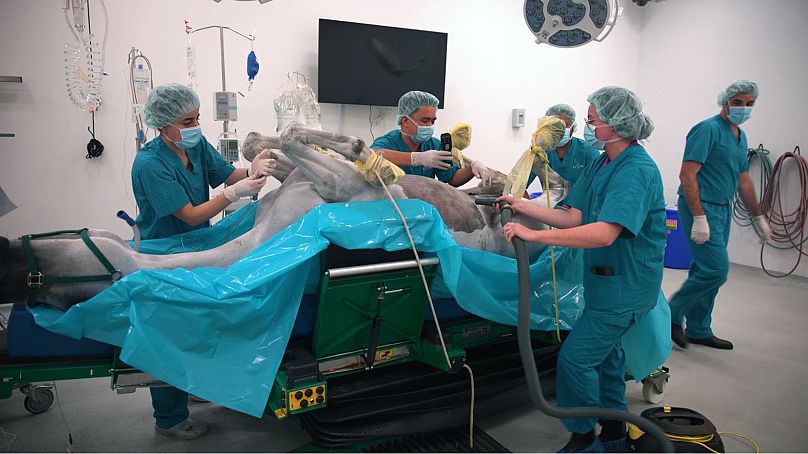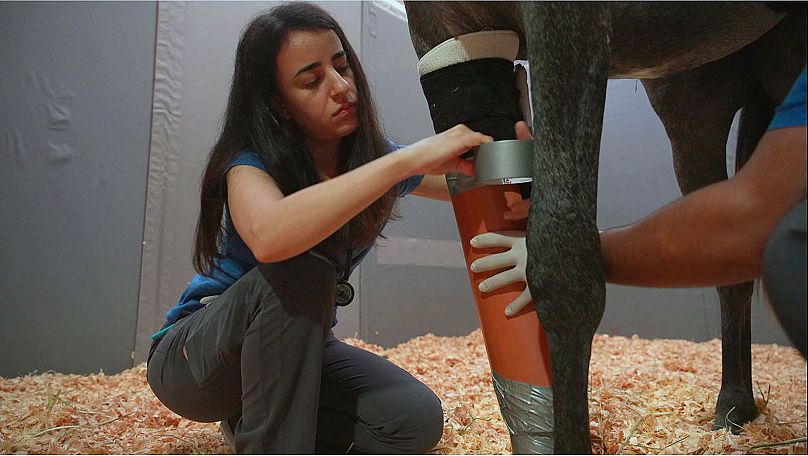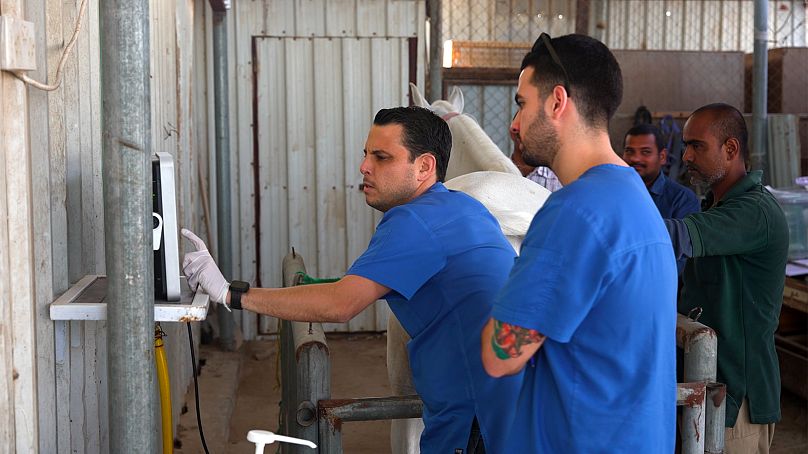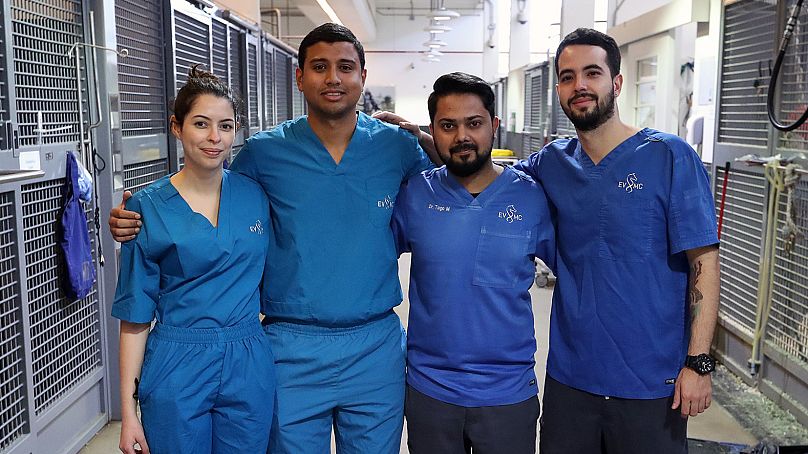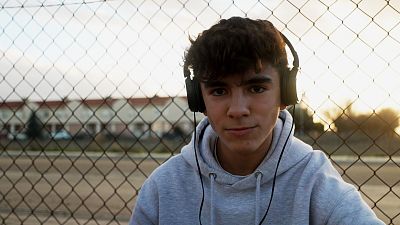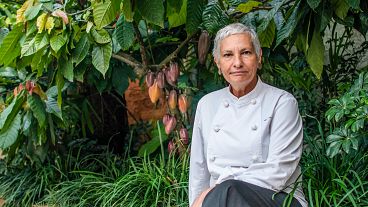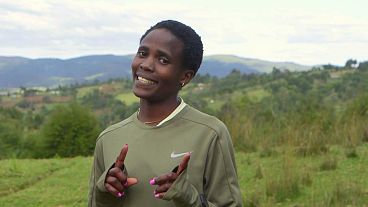Broken hooves, eye infections, pregnancies and stomach pain are some of the many medical cases seen at Qatar's Equine Veterinary Medical Centre (EVMC). The state-of-the-art hospital treats horses of all ages, sizes and breeds and is committed to improving their health and well-being.
SCENES shines a spotlight on youth around the world who are breaking down barriers and creating change. The character-driven short films will inspire and amaze as these young change-makers tell their remarkable stories.
Broken hooves, eye infections, pregnancies and stomach pain are some of the many medical cases seen at Qatar's Equine Veterinary Medical Centre (EVMC). The state-of-the-art hospital treats horses of all ages, sizes and breeds and is committed to improving their health and well-being.
The hospital is located in Qatar Foundation's Education City and offers an internship program for newly qualified veterinarians. The intensive training program runs for one year for graduates who wish to specialise in equine medicine.
"The Equine Veterinary Medical Centre is one of the largest hospitals for horses in the Middle East," says Dr Felipe, an intern in the program. "This facility has different services, like diagnostic imaging, a high-class laboratory, reproduction units, surgical theatres, an internal medicine department and ambulatory services," he adds.
Hands-on training
Dr Matthew G Robin is head of The Internal Medicine Department at EVMC. He says the internship programme gives the next generation of veterinary surgeons valuable mentorship. The program offers interns the opportunity to acquire hands-on training and theoretical knowledge and exposes them to different fields within equine medicine.
"The aim is to put the knowledge that they learned at university into practice and make them much more grounded in experience for when they go into work for themselves," he says.
'Surgical caseloads'
The highly competitive internship program takes graduates from all over the world. This year there are five interns from Jordan, Pakistan, Colombia and Venezuela.
Dr Mohammad Noman Shahbaz is from Pakistan, and his ambition is to become an experienced surgeon.
"I need to do some practical work, especially in surgery. I think this hospital is the best place to do that because we have a lot of surgical caseloads, and the surgeons are excellent," he says.
Horses are highly valued and respected in Qatar, both culturally and economically. The country has a long horse breeding and racing history, and the animal is an essential part of the country's heritage.
"We have all kinds of horses here. We have racing horses, jumping horses, and show horses. But the primary breed we work with is Arabian horses," explains Dr Leonardo Rivero Izaguirre, an intern from Venezuela.
The daily duties of the interns alternate between elective work and emergency work. Dr Alanoud M Alshami from Jordan says that her day starts at 7:30 am when she takes over from another intern operating the night shift.
"As an intern, we have different responsibilities, from giving care to the inpatients to admitting emergencies. Also, we assist in surgeries, do some procedures, and do the treatment plans with the senior clinicians," she says.
'Reproduction Field Service'
In addition to hospital procedures, interns visit farms around Qatar with the hospital's reproductive specialist. The Reproduction Field Service treats mares and stallions and offers treatment to owners who are unable to bring their horses to the hospital.
"One of the common procedures is the ultrasound checking of the meres to see where in the cycle they are or if they're pregnant or not," Dr Felipe tells SCENES.
Treating sick and injured animals is a challenge for even the most experienced veterinarian. Dr Leonardo says his chosen career has its issues.
"It's sometimes hard to know what's happening with the animal. You need to have all the clinical skills and the knowledge to do a good physical exam to know what's happening," he says.
"In addition, we have the difficulty of them being large, strong and potentially dangerous. And we get around that because we have excellent facilities and a team, adds Dr Matthew.
'Beautiful creatures'
Dr Mohammad says the program has helped him personally and forced him to work outside his comfort zone. He finds the work rewarding and enjoys helping animals who are suffering.
"I love working with these beautiful creatures. The hospital sees the sickest of the sickest animals. And after some time, they walk out the door and are healthy again. So that makes me feel happy," he explains.
The Equine Veterinary Medical Centre's internship program provides aspiring veterinarians with a unique and comprehensive learning experience. Dr Matthew says that one of the best ways to learn is to spend time with a specialist.
"It's a fantastic profession, and you do get a lot of satisfaction from it, albeit often after a lot of very hard work," he says.
The interns have access to cutting-edge facilities and can learn from some of the best specialists in the world. The program has gained recognition for its quality training, and many of its graduates go on to have highly successful veterinary careers.




